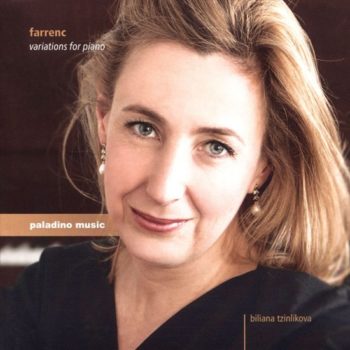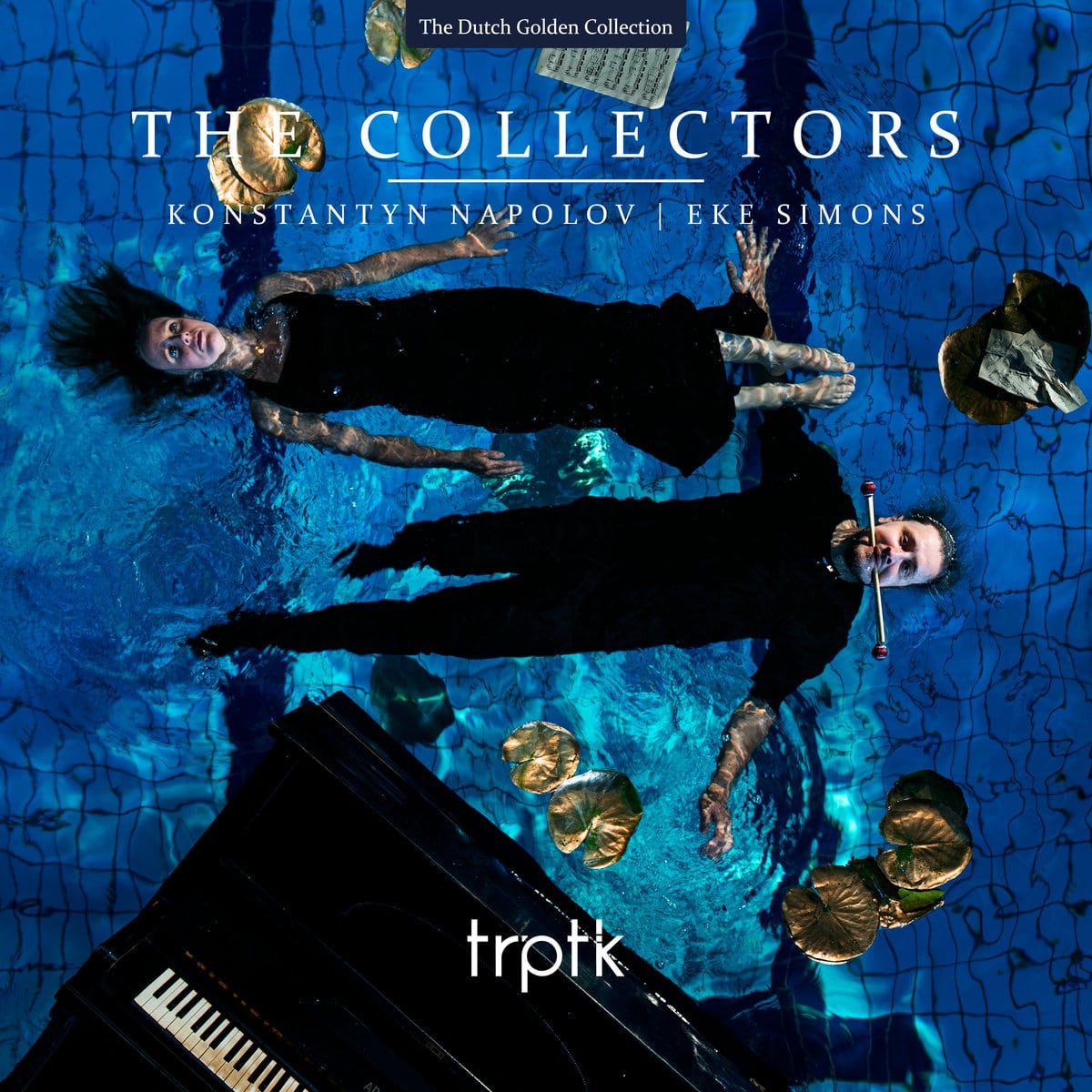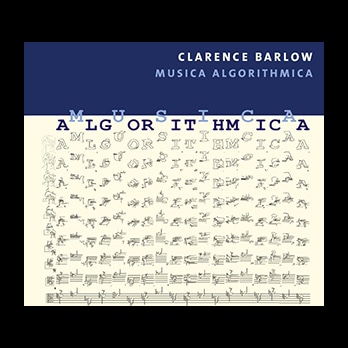Het einde van het jaar nadert. Dus vliegen ons de lijstjes weer om de oren met ‘mooiste’, ‘beste’, ‘onvergetelijkste’, ‘ontroerendste’… vulmaarin. Top-zoveels samenstellen vind ik eigenlijk een typisch mannending, maar vooruit, ik ben de beroerdste niet. Hierbij drie cd’s die je dit jaar niet had willen missen – in willekeurige volgorde dan toch.
Louise Farrenc: Variations for Piano
Biliana Tzinlikova, piano
Louise Farrenc (1804-1875) was een leeftijdgenoot van grootheden als Chopin, Fanny en Felix Mendelssohn, en Robert en Clara Schumann. Anders dan Fanny en Clara werd haar als componist geen strobreed in de weg gelegd. Sterker nog, op haar 17e trouwde ze met een muziekuitgever die haar zeer aanmoedigde en haar composities uitgaf.
Als concertpianist kreeg ze overigens wel te maken met discriminatie toen ze docent werd aan het Conservatorium van Parijs. Ze mocht alleen meisjes onderrichten en kreeg minder betaald dan haar mannelijke collega’s. – Dit laatste vocht ze met succes aan. Haar piano-etudes werden zelfs officieel als lesmateriaal gebruikt, ook in het onderricht aan heren.
 Begrijpelijk, want de pianomuziek van Farrenc is krachtig en virtuoos, zonder te epateren. De Bulgaarse Biliana Tzinlikova speelt vier van haar meest succesvolle werken. Voor de Variations brillantes liet Farrenc zich inspireren door een cavatina uit de opera Anna Bolena van Donizetti. Dramatische trillers en lyrische melodieën worden doorsneden met virtuoze notenwatervallen.
Begrijpelijk, want de pianomuziek van Farrenc is krachtig en virtuoos, zonder te epateren. De Bulgaarse Biliana Tzinlikova speelt vier van haar meest succesvolle werken. Voor de Variations brillantes liet Farrenc zich inspireren door een cavatina uit de opera Anna Bolena van Donizetti. Dramatische trillers en lyrische melodieën worden doorsneden met virtuoze notenwatervallen.
De Air russe varié is bespiegelender van aard en werd door Robert Schumann geprezen om zijn ‘romantische inslag’. In Grand variations on a Theme by Count Gallenberg horen we reminiscenties aan Chopin. Ook het laatste stuk op de cd bestaat uit variaties op een operathema, dit keer van George Onslow. Een volkswijsje klinkt nu eens dansant dan weer resoluut en onstuimig, zoals het pompende ‘alla polacca’. Tzinlikova heeft een stevig toucher en haar zakelijke toon past uitstekend bij de zelfverzekerde betogen van Farrenc.

The Collectors
Konstantyn Napolov & Eke Simons, slagwerk/piano
Jan-Peter de Graaff: The Bells of St. Clement’s
Yannis Kyriakides: Once there was
Moritz Eggert: The Collectors
Ik hoorde de drie eerste stukken van deze cd tijdens het recente festival November Music. Indrukwekkend hoe Konstantyn Napolov & Eke Simons in elke compositie een compleet andere sfeer weten te treffen. The Bells of St. Clement’s van Jan-Peter de Graaff is geïnspireerd op het Engelse kinderrijmpje ‘Oranges and Lemons’. In de dystopische roman 1984 van George Orwell vertegenwoordigt dit de notie dat vrijheid in een totalitaire staat een andere vorm van onderdrukking betekent.
Het stuk opent met lieflijke belletjes en zachte piano-akkoorden. In het tweede deel worden fraaie harmonieën ‘weggemept’ door zware dreunen op het slagwerk. In het afsluitende deel keert het onschuldige getinkel terug. Dit wordt gaandeweg echter gesmoord in obsessief ketsende stenen en een beukende piano.
Ook Yannis Kyriakides liet zich in Once there was inspireren door kinderverhaaltjes. Met name hoe hierin vaak duistere, politiek/maatschappelijke boodschappen verborgen lagen. Naast slagwerk en piano gebruikt Kyriakides ook bandopnames en beeld – dat uiteraard op cd achterwege blijft.
 Kyriakides samplede schijnbaar onschuldige regels uit ‘Oranges and Lemons’ die een man op weg naar zijn executie begeleidden. Een langzaam vertragende en vervormende vrouwenstem spreekt deze uit. ‘Here comes a candle to light you to bed/ And here comes a chopper to chop off your head!’ Begeleid door verwaaide pianoloopjes en gonzende bekkens creëert Kyriakides een omineuze sfeer.
Kyriakides samplede schijnbaar onschuldige regels uit ‘Oranges and Lemons’ die een man op weg naar zijn executie begeleidden. Een langzaam vertragende en vervormende vrouwenstem spreekt deze uit. ‘Here comes a candle to light you to bed/ And here comes a chopper to chop off your head!’ Begeleid door verwaaide pianoloopjes en gonzende bekkens creëert Kyriakides een omineuze sfeer.
De cd is vernoemd naar met het mooiste stuk, The Collectors van Moritz Eggert. In het cd-boekje vertelt hij dat hij een obsessief verzamelaar is, net als zijn vader en grootvader. Die laatste nam met zijn boeken zelfs zoveel ruimte in dat zijn echtgenote hem verliet. Zelf verzamelt Eggert boeken, whisky, bordspellen en meer – ‘het is verschrikkelijk’. Hij ziet een overeenkomst met componeren. ‘Als componist zijn we geen uitvinders die iets totaal nieuws scheppen. Nee, we putten uit de immense bibliotheek van muziek die opgeslagen ligt in ons hoofd.’ En gelijk heeft hij natuurlijk.
De manier waarop Eggert aanhaakt bij bestaande muziek maakt zijn werk fris en toegankelijk. Hij geeft bekende harmonieën en melodieën een inventieve twist, waardoor ze een heel eigen leven gaan leiden. Speelvreugde en klankrijkdom strijden om de voorrang, er is vaak wat te lachen. Repetitieve patronen, debussyiaans impressionisme en swingende ritmiek worden gekruid met bewust lullige zanglijntjes en zwierige glissandi op marimba.
Verstilde passages worden doorbroken met snerpende klanken van plastic knijpbeestjes en speelgoedfluitjes. Bij het laatste deel is het lastig stil te blijven zitten. Een opzwepend, Reich-achtig patroontje van de piano wordt ingekleurd met warme klanken van bronzen en houten slagwerkinstrumenten. Ook hier toveren de kreetjes van de pianiste en komische speelgoedgeluiden een glimlach op je lippen. – Hallo, wie is hier nog bang voor moderne muziek?

Clarence Barlow: musica algorithmica
Modelo62; Ensemble Köln; Iceland Symphony Orchestra; SWR Radio Orchester Baden-Baden
Het Haagse ensemble Modelo62 zet zich vanaf zijn ontstaan in voor vergeten of veronachtzaamde componisten. Zo wijdden zij eerder dit jaar een project aan de op schilderijen geïnspireerde muziek van Sedje Hémon. Nu breken de musici een lans voor de hier te lande weinig bekende Brits/Duitse componist Clarence Barlow.
 Hij werd geboren in India als lid van de Britse minderheidsgroep en studeerde zowel in Calcutta, Londen als Keulen. Daar stond hij in 1986 aan de basis van Musik und Informatik Köln. Hij doceerde computermuziek in Darmstadt en aan de Musikhochschule in Keulen. Bovendien was hij artistiek directeur van het Instituut voor Sonologie aan het Koninklijk Conservatorium in Den Haag.
Hij werd geboren in India als lid van de Britse minderheidsgroep en studeerde zowel in Calcutta, Londen als Keulen. Daar stond hij in 1986 aan de basis van Musik und Informatik Köln. Hij doceerde computermuziek in Darmstadt en aan de Musikhochschule in Keulen. Bovendien was hij artistiek directeur van het Instituut voor Sonologie aan het Koninklijk Conservatorium in Den Haag.
Maar ondanks zijn liefde voor elektronica heeft Barlow een voorkeur voor de pure klank van fysieke instrumenten. Wel speelt de computer een centrale rol in zijn werk. Hij gebruikt deze om de structuren van zijn werken te genereren, vandaar de term ‘musica algorithmica’. Dit klinkt cerebraler dan het is. Net als Eggert benadert Barlow op speelse wijze de muziektraditie en neemt hij de naoorlogse avant-garde op de hak.
Zo horen we in Sachets des ciseaux insatiables een soort atonale versie van Michelle van The Beatles. In Septima de facto clasht een vrolijke boogie-woogiepiano met een toenemende kakofonie van de overige instrumenten. Uiteindelijk slaat ook de piano compleet op hol. De doldrieste sfeer roept de tegendraadse muziek van Charles Ives in herinnering. Modelo62 verdedigt deze muziek met veel inzet en overduidelijk plezier. Op een tweede cd verdedigen drie andere ensembles de eigenzinnige klankwereld van Barlow.
